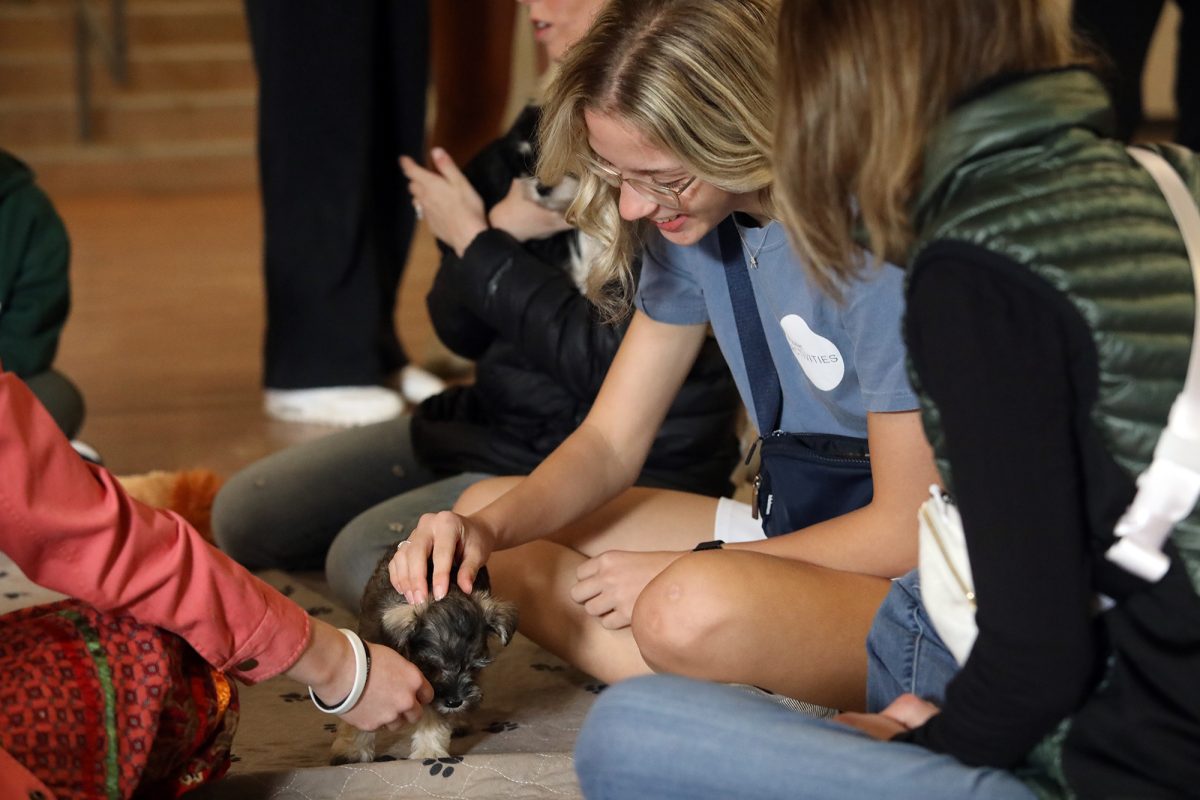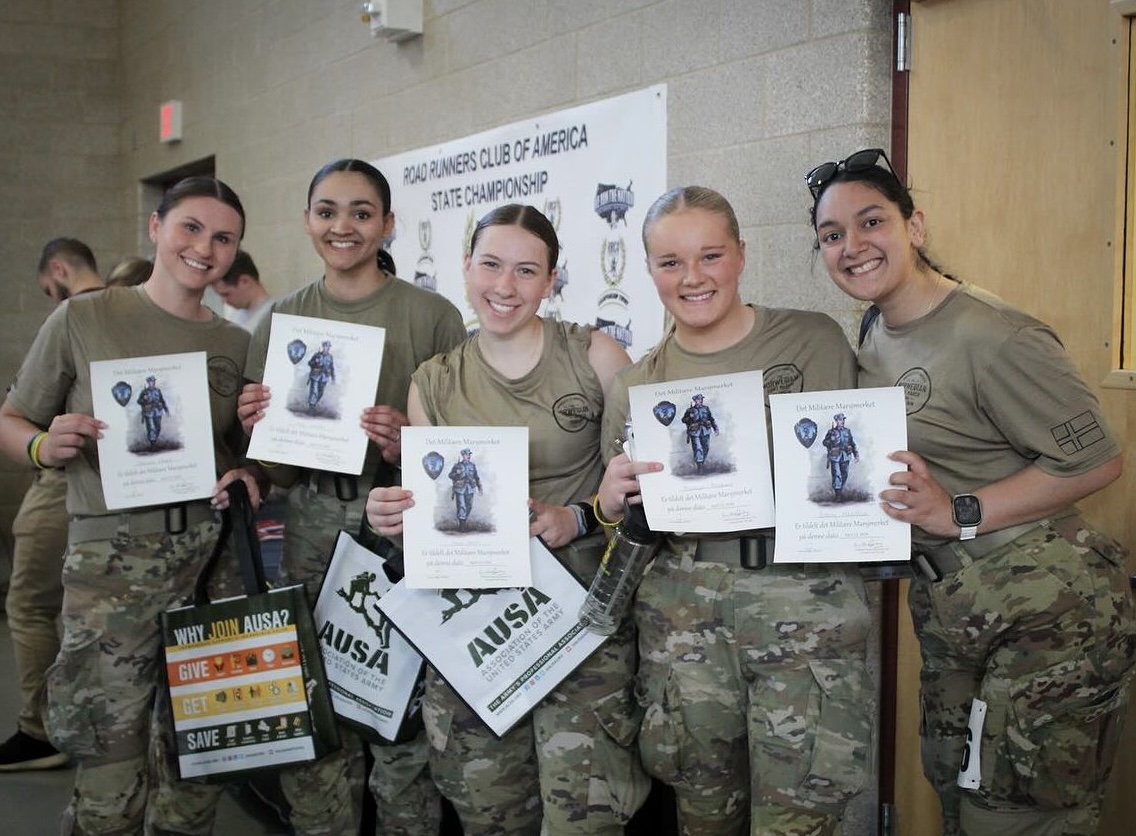Senior Micah Latty came in first place for the 2016 Elie Wiesel Prize in Ethics.
By Abby Petersen

Thirteen-year-old Micah Latty stands in front of a bookshelf at his local library, staring at books he knew could change his mind – atheism, agnosticism – books that posed ideas outside of the Christian theology he grew up hearing.
“Do I want to open that can of worms?” he thought.
He did. More than ten years later, opening those books paid off when Latty, 21, won the 2016 Elie Wiesel Prize in Ethics.
Latty knew he wanted to pursue the prize the moment he heard about it his freshman year of college. It’s open to junior and senior undergraduate students at four-year universities in the U.S. Participants must analyze an ethical issue they have encountered, and if they win, prize money ranges from $500 for honorable mentions to $5,000 for first prize.
Latty took first for his essay “Welcoming Silence.”
Latty was born in San Francisco and moved to Minnesota in 2004. Drawn by the teachings of Greg Boyd, the senior pastor at Woodland Hills Church, and his interest in combining logic to philosophical thought, Latty came to Bethel to pursue an undergraduate degree in computer science and philosophy.
“If you think something as extraordinary as Christianity is true, why wouldn’t you want to learn about it?” Latty said.
When his junior year came, Latty began toying with ideas for the essay, finally settling on the topic of silence. The idea came to him after his own frustration with the constant noise of social media and the “tokens” of communication that come with them – the Facebook “like” button, Snapchat “stories.” He wanted to write an essay about the potential hospitality of being silent to make space for other voices.
“Silence lets us hear people around us,” Latty said.
The essay guidelines required Latty to choose a faculty sponsor to review his essay before submission. Latty asked philosophy professor Sara Shady.
Shady said she played a minor role in the development of the essay. Apart from some final comments Shady gave, Latty did all the work. Although the essays are blind-read, Shady knew that winners typically came from state universities or Ivy League schools.
Shady believes the reason Latty’s essay won may have been because of its timeliness with the 2016 presidential election – and Latty agreed. He had written what he referred to as an “accidentally relevant paper.” He believes his own biracial identity – born to a mother from Wisconsin and a father from Jamaica – shaped his ability to accept diverse worldviews. He also thinks that although his essay was original, it started from a foundation of the authors and philosophers he had read growing up.
“(Latty’s essay was one of the) most creative essays in ethics I’ve ever read,” Shady said.
Computer science professor Nathan Gossett was also impressed by Latty’s work because of Latty’s variety of disciplines. Although computer science and philosophy are separate departments at Bethel, places like Augsburg College now offer degrees in computational philosophy.
“It’s great to see people have a broad range of skills,” Gossett said.
On Dec. 14, 2015, in the middle of the Festival of Christmas, Latty scribbled across the latest draft of his essay with red pen. Five months later in May 2016, sitting in a Caribou Coffee, Latty opened an email. He had won.
My basic love for philosophical theology is that it’s a source of adventure and a potential source of harmony. Micah Latty
The next April he attended an awards reception in New York where he met Wiesel’s wife, Marion, and fellow prize winners. Wiesel died in 2016, two months after Latty won.
Now, a year later, Latty checks the time on his Apple smartwatch. He lives in a hamster wheel, as he calls it, embracing parts of the “noise” of social media and leaving others to silence. Although he still has a Facebook page, he turned off all updates from everyone except a few close friends. He continues to consider philosophical thought of all kinds – embracing authors like Wendell Berry and David Bentley Hart – even if he knows he won’t agree. He plans to use the $5,000 to feed himself as he pays off his college loans.
“My basic love for philosophical theology is that it’s a source of adventure and a potential source of harmony,” Latty says.
A reception for Latty will take place May 11 at 4 p.m. in BC468, hosted by the philosophy and computer science departments.








![Senior Bethel receiver Micah Niewald sheds a would-be tackler on his way to a touchdown in the Royals’ 73-8 win over Augsburg Saturday. Niewald sped his way to two touchdowns in the win, tallying 62 yards after the catch between the two scores. “Knowing I can outrun the guy that’s chasing me is a big thing,” Niewald said. “That’s going back to [strength and conditioning] Coach Meyer and everything we do in the summer and off-season.” | Photo by Carl Schumland, Bethel Athletics](https://thebuclarion.com/wp-content/uploads/2024/10/3J9A1632-1200x800.jpg)










